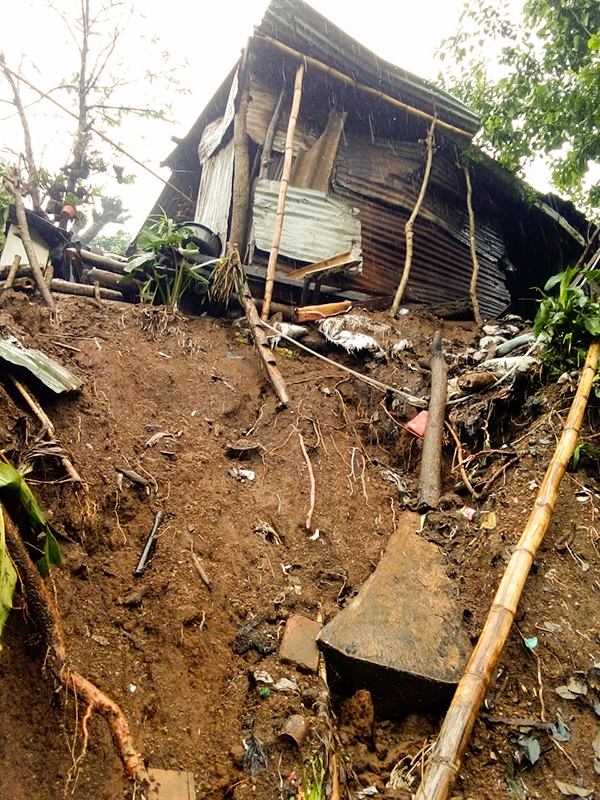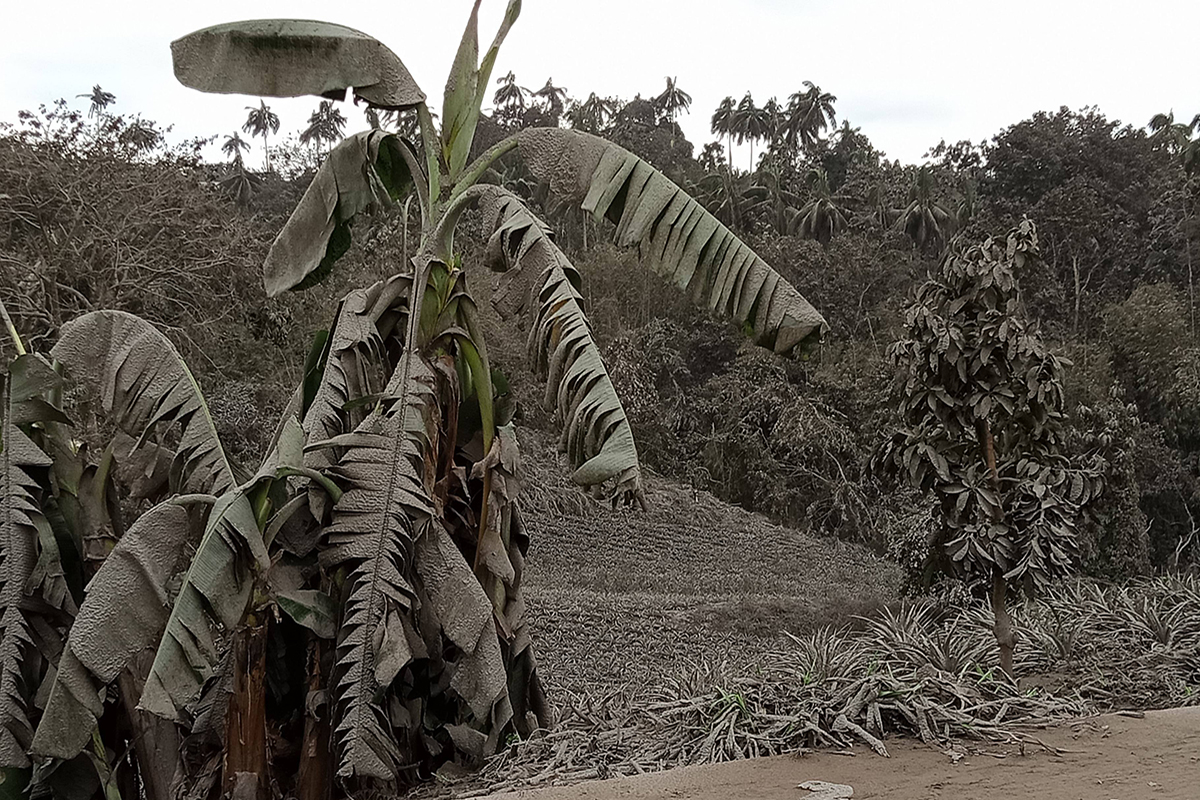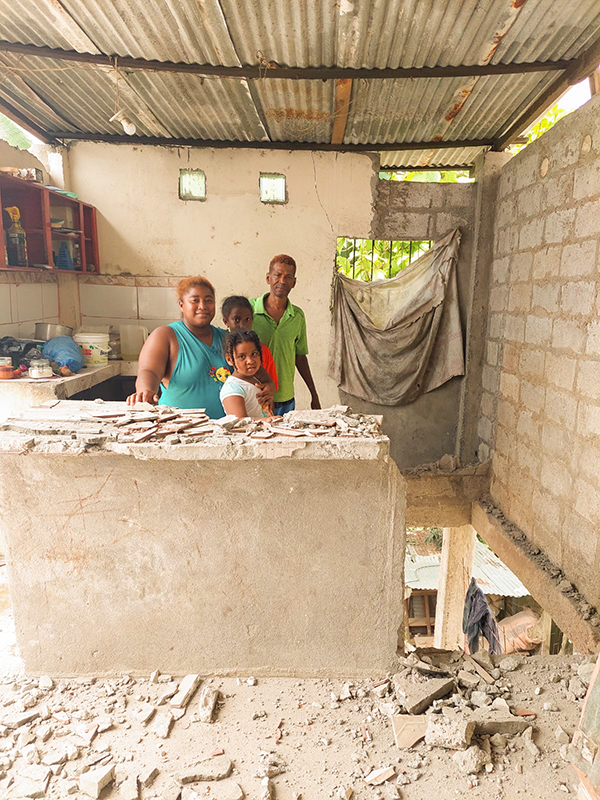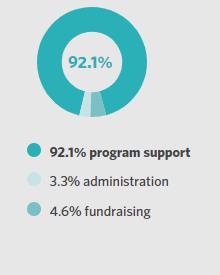Natural disasters affect people of every nation and socio-economic status, but when they strike those already burdened by severe poverty, the results can be devastating. That’s why local Unbound programs and the worldwide Unbound community prepare to help families recover from catastrophic events.
“Natural disasters strike marginalized populations differently than those living in more secure conditions,” said Unbound’s International Program Director Pritha Hariharan. “But vulnerability doesn’t always equal helplessness. Our program staff around the different parts of the world are acutely aware of this reality and are always prepared to implement program interventions when appropriate.”
Those interventions are often in the form of special funds that local Unbound programs set aside for emergencies. But when local support isn’t sufficient, relief can also come from Unbound’s Critical Needs Fund, which is maintained through contributions from sponsors and other benefactors.
Weathering the Storm
In times of disaster, Unbound stands ready to help families recover
October 12, 2022 | Be Informed
a dangerous season
Most families in the Unbound program live in places prone to severe weather events like typhoons, hurricanes, floods and mudslides. In addition, several Unbound countries are located along the “Ring of Fire,” the greater Pacific coastline where most of the world’s volcanic activity, earthquakes and tsunamis occur.
While these events can happen at any time, summer and fall are when hurricanes and typhoons (regional names for the same type of tropical cyclone) are most likely to happen.
One of the most impactful hurricanes so far this year was Hurricane Fiona, which caused extensive damage in the Caribbean in September, including in the Dominican Republic where there are families in the Unbound program. It was followed in early October by Hurricane Ian, which first made landfall in Cuba and went on to cause major devastation in Florida.
At the same time Fiona was moving through the Caribbean, Super Typhoon Karding was causing severe damage in the Philippines, where there are five local Unbound program centers serving thousands of families. Comprised of many islands at the confluence of the Pacific and Indian oceans, the Philippines is especially vulnerable to typhoons and is impacted, on average, by 20 or more per year.
At last count, 274 families in the Unbound program sustained damage to their homes or other property as a result of Karding. Program staff are assisting them in their recovery by providing food and other emergency supplies as well as funds for home repairs.

Mudslides are a common occurrence in Latin America as a result of heavy rains and flooding. This home in El Salvador fell victim to a mudslide in the aftermath of Tropical Storm Amanda in May 2020.
an indigenous community is impacted
In the aftermath of Karding, a serious diarrhea outbreak occurred among the Dumagat indigenous people in the Quezon and Rizal provinces on the island of Luzon. The outbreak was the result of contaminated water caused by sewage runoff brought about by heavy rains.
Many of the Dumagats are sponsored through Unbound. Out of 170 households affected by the outbreak, 56 are families in the program. According to the latest report from Antipolo program staff member Niño Godio, 38 families received immediate assistance. Tragically, three family members of sponsored persons have died. Others have been hospitalized while most are receiving medical treatment in their homes.
Unbound staff is offering support to help alleviate the crisis, according to Antipolo program coordinator Fely Alvarado.
“Our staff are already there to attend to their immediate needs and also to [help families] avoid further risks,” she said. “We'd given them medicines, vitamins, foods and water for drinking.”
Godio added the Dumagat community is also receiving psychological counseling as well as hygiene education to help them avoid such a health crisis in the future.
Ready to respond
Because of Unbound’s presence in local communities and local teams’ efforts to maintain close contact with the families they serve, they are able to quickly mobilize to offer aid following a disaster, often including supplemental financial support.
“Many of our program locations set aside a portion of their budgets in locally based ‘calamity funds,’ Hariharan said. “When a disaster strikes, their first course of action is to assess the needs of the impacted families and provide immediate relief. This might be in the form of providing drinking water, food kits, or even partnering with local organizations to help them find shelter or counseling services.”
But some disasters — natural and otherwise — require a greater response than local programs are able to provide. At times like that, the greater Unbound community can step in to help with support from the Critical Needs Fund.
“The Critical Needs Fund provides essential support to sponsored members in situations such as crises emerging as a result of natural disasters, health crises, family crises resulting in loss of shelter, income or other critical needs,” Hariharan said.
In January, for example, the Antipolo program in the Philippines received a grant of $10,000 from the fund to help families recover following Typhoon Odette. Another $9,800 was sent to help families in Ecuador following a 5.8-magnitude earthquake in March, and the Antipolo program will receive an additional $2,600 to aid the Dumagat community in recovery from their current health crisis.
So far in 2022, more than $1.4 million from the Critical Needs Fund has been sent to programs around the world for families in crises. Support from sponsorship and the Critical Needs Fund allows Unbound to be present in communities before, during and after crises, helping people remain resilient and overcome setbacks so they can continue their paths out of poverty.

Vegetation covered in volcanic ash remained following the January 2020 eruption of the Taal Volcano in the Philippines. Thousands of families in Unbound programs in Asia and Latin America live under the threat of volcanic activity.

The family of sponsored child Ivanova (rear, middle) stands in their damaged home in Ecuador after a 5.8 magnitude earthquake in March. Ecuador lies on the “Ring of Fire,” the Pacific rim where most of Earth’s seismic activity takes place.
What you can do to help
Unbound sponsors are personally notified whenever it’s confirmed that one of their sponsored friends or a family member has been injured or otherwise seriously affected by a disaster. Sponsors are asked to keep their contact information updated.
Sponsors and other concerned persons are also invited to join the worldwide Unbound community in prayer, not only in times of crisis but as a way to spiritually support one another — and especially struggling families — through all of life’s challenges.
Finally, all are encouraged to consider donating to the Critical Needs Fund so that Unbound can be ready to respond whenever the need arises in programs around the world.
The Critical Needs Fund provides essential support to sponsored members in situations such as crises emerging as a result of natural disasters, health crises, family crises resulting in loss of shelter, income or other critical needs.
— Pritha Hariharan, Unbound International program director













